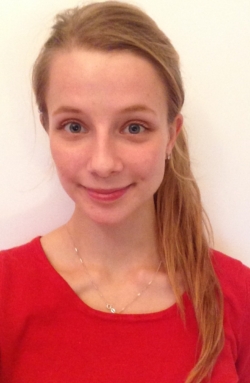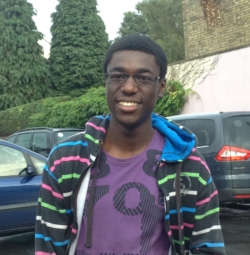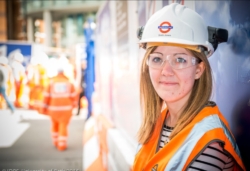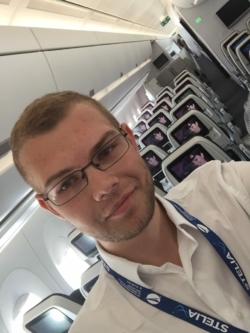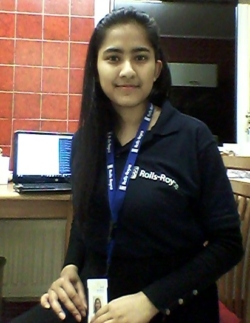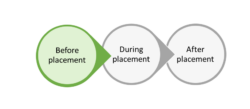
Your Placement Journey Toolkit is designed to support you to get the best from your placement experience. It will help you to think about your placement, looking at your expectations, recognising your own responsibilities alongside those of your university and placement provider.
Aligned with the Engineering Placements Toolkit, designed for education institutions and employers, this toolkit aims to support your placement experience in three key stages: before, during and after placement.
When choosing your placement, you need to consider a wide range of aspects such as your motivations for doing a placement, type and length, discipline, location and type of company.
First of all, get in touch with your Faculty’s or University’s Career Services, as they will provide you useful information and support on choosing and applying for a placement, building up your CV, and getting prepared for interviews.
Top Tips
- Apply early, but don’t apply just for the sake of applying. Choose your placement according to your interests and expectations. After all, you will spend a lot of your time and effort in the company
- Explore the websites of the companies you would like to work with. Many do offer placement opportunities. Also check with your university’s career services
- Ensure you understand the specific expectations of the placement – get in contact with your academic supervisor (university) and your placement supervisor (employer)
- Know how you are going to meet your learning outcomes. How will your learning be assessed? Keep a log book/diary of your activities
- Have realistic expectations, and understand that they may change throughout your placement
- Always act professionally with regard with punctuality, attitude and image. Your career services can provide you with a set of professional skills.
Should I do a placement?
Not sure about doing a placement?
These students have already done one, read what they had to say about it.
Doing a placement will improve your chances of getting a good job after graduating enhances your professional recognition. There’s also lots of evidence that students who gain some form of relevant work experience during their studies improve their grades.
What placement should I choose?
Do you want to narrow down your interests?
In this case you can pick a company where you can try different roles and work in a wider range of projects to get a taste of the different engineering fields. Instead of doing just one placement, you can also do short placements in different companies, for example, during summertime.
Do you want to focus on a specific engineering field?
If you already know the engineering field you want to specialise and work in the future, you should go for a placement of your preferred engineering field. You can have a look on your future professional engineering institution on the Engineering Council.
What length of placement is best for me?
Do you want to do a short placement? Or a summertime placement?
Get in contact with your University’s Career Services.
You can also look for placement opportunities searching on specialist websites such as:
Do you want to do a Year in Industry?
You might consider doing a gap year during your degree if you want to:
- Get experience in your field of study before graduating. Employers value work experience when recruiting new candidates.
- Increase your employment prospects. Many students get a work contract after their placement in the company.
- Have a break from university and experience the world of work.
The Year in Industry (YINI) scheme provides STEM placements. They provide high-quality, paid placements for students in their gap year before or during their degree course.
To which type of company should I apply?
Choose a company that will enable you to explore your interests, support your learning and future expectations.
Working in a big company you would be able to have the opportunity to work in different departments and projects. Working in a small company you would be able to get a more individualized experience and you will be more likely to have a closer direct management.
Don´t forget to consider salary, travel and accommodation
Ask yourself the following questions and plan ahead.
- Will my salary be enough to pay for living costs?
- Am I willing to move in a different city for doing the placement?
- Can I easily travel there? What’s the public transport like and how much will it cost?
Get prepared
The application process can be complex. Ask for advice in your university’s career services, but be proactive. You might like to also explore the following resource:
Are you an international student?
Does your placement have VISA requirements? You can explore the UK Council for International Student Affairs (UKCISA) for more information. Get in contact with your Career Services for advise and support.
Read more
Any views, thoughts, and opinions expressed herein are solely that of the author(s) and do not necessarily reflect the views, opinions, policies, or position of the Engineering Professors’ Council or the Toolkit sponsors and supporters.
